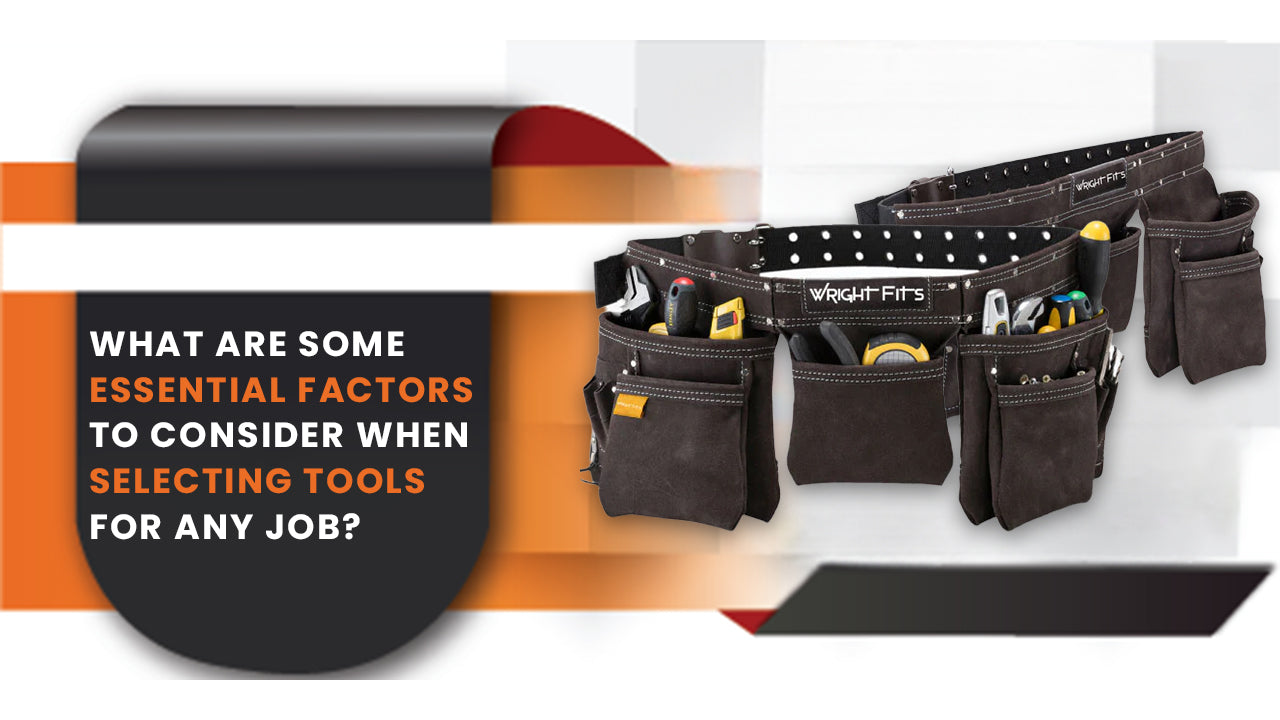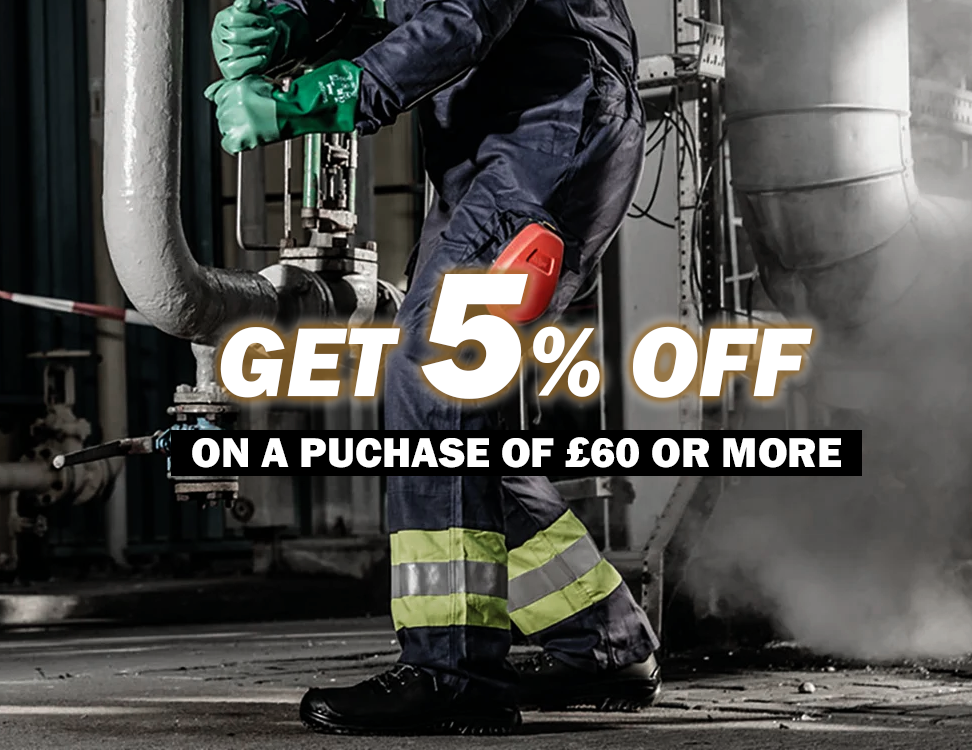What Are Some Essential Factors To Consider When Selecting Tools For Any Job?

As a tradesperson, selecting the right tools for your job is crucial for getting the work done efficiently and effectively. However, with so many options available, it can be challenging to know which tools to choose. In this blog, we have outlined the essential factors to consider while selecting tools for a DIY kit to plumber tools kits.
Quality & Durability
Tradespeople rely on their tools to perform their jobs, so they need tools that are built to last and can withstand heavy use. Tools that break or wear out quickly can be frustrating and costly to replace. Here it is recommended that never rely on a single source in this respect. Do research and visit more options before making your purchase. Shortlist the 4 to 5 sources that can offer you your standard of quality. Have a comparison and decides in the favour of most suitable source for the purchase. However, to secure the life of your required tools you can advised to take good care of your stuff. Here do comply with the manual directions and keep your tools clean and oiled.
Comfort & Ergonomic
Tradespeople frequently use their tools for extended periods of time, therefore they require equipment that is both pleasant to hold and operate. A tool's weight, form, or lack of suitable grips can all contribute to weariness or even damage. Therefore search for tools with flexible handles and triggers, appropriate weight distribution, and soft, pleasant grips. It's crucial to utilise good form and technique when using your instruments, even with ergonomic designs. Injury and tiredness risk can be decreased as a result. When making a purchase, think about the tool's weight and go for lightweight solutions wherever feasible.
Portability & Storage
You often need to take your tools with you to different job sites, so they need to be easy to transport and store. Bulky or heavy tools can be difficult to move around, and tools that don't come with carrying cases can be hard to keep organized and protected. Hence, Look for tools that are lightweight, easy to carry and don't take up too much space. For example, cordless tools can be a great option since they are usually lighter and more portable than their corded counterparts. Arrange for smart storages and leather tool belt like tool organizers. Use a multi-tool that combines several functions in one, or invest in a set of interchangeable heads for your power tools.
Compatibility & Versatility
A tradesman requires different tools for different jobs, so he needs tools that can be used in a variety of settings and that can work with other tools or accessories. Thus consider investing in a tool system that is designed to be modular and adaptable. For example, some tool brands offer modular systems that allow tradespeople to mix and match different components to create customized tool sets that are tailored to their specific needs.
Cost-Effectiveness
You may be on a tight budget, so you need tools that provide good value for your money. You may also need to consider the cost of replacing or repairing tools if they break or wear out. Never settle with single source without comparing its price with other brands. Avoid buying single tool always go for tool sets to achieve economy. However, never compromise quality over price as cheap stuff doesn’t last for long. It makes you spend again and again. But a quality purchase proves cost effective in long run.
Availability & Accessibility
Tradespeople need to be able to easily access the tools they need, whether that's through online ordering, local hardware stores, or tool rental services. They may also need tools that are easy to find replacement parts for or that can be serviced quickly if needed.
Brand Reputation & Customer Support
Tradespeople often rely on brands that have a good reputation for quality and reliability. They also need access to good customer support in case they have questions or issues with their tools. So whether you are looking for a screwdriver or hex key set, rely on a reputed brand.
Innovation & Technology
Tradespeople are often looking for tools that incorporate the latest technology and innovations to help them work more efficiently and effectively. This might include tools that use new materials, have smart features, or integrate with other technology.
Effect On The Environment
Tradespeople may be seeking for equipment that are eco-friendly or that have a lesser carbon footprint as environmental concerns continue to rise. These can include equipment with recyclable parts, renewable energy sources, or waste minimization features.
Specialization
Some trades require specialized tools or tool accessories, such as those used in electrical work, plumbing, or carpentry. Tradespeople may have concerns about finding tools that are specifically designed for their trade and that meet industry standards.
Warranty & Guarantees
Tradespeople may want to ensure that their tools come with a warranty or guarantee that protects them in case of defects or malfunctions. They may also want to know the terms and conditions of the warranty, such as how long it lasts and what it covers.
User Reviews & Recommendations
Tradespeople may rely on user reviews and recommendations from other professionals in their trade to help them make informed decisions about which tools to purchase. They may also seek out online forums or social media groups to connect with other professionals and share knowledge about tools and accessories.
Upgradability & Customization
Some tradespeople may want tools that can be upgraded or customized to meet their specific needs. This might include adding accessories or attachments that expand the tool's capabilities or modifying the tool itself to better suit their work.
Safety Features
Safety is another crucial concern as it provides you security against injury or harm. Accessories like kneepad play a vital role in this regard. Since without it you wouldn’t be able to perform efficiently. Tools with sharp edges or moving parts can be dangerous if not used properly, so they need to have proper safety features and instructions for use. To ensure this feature look for tools with built-in safety features, such as guards or automatic shut-off switches, that help prevent accidents or injuries. Never ignore instructions and warnings before using tools.
Regulation & Compliance
Tradespeople may need to ensure that their tools and accessories meet industry and government regulations and standards. They may also need to be aware of any safety or usage requirements when working with certain tools, such as those used in hazardous environments or around electrical equipment.

